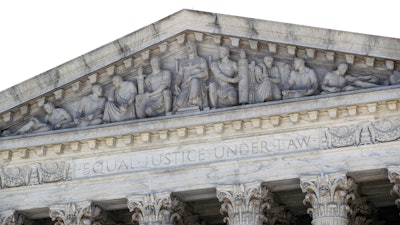
WASHINGTON (AP) — The Supreme Court will consider ending a lawsuit that claims Nestle and Cargill facilitated the use of child slave labor on cocoa farms in Ivory Coast, a case that could further limit access to U.S. courts by victims of human rights abuses abroad.
The justices said Thursday they will review an appeals court decision that revived the lawsuit filed by former child laborers who say they were taken from Mali and held in slavery on cocoa plantations in Ivory Coast. Arguments will be held during the term that begins in October.
The court has been paring back a strategy begun in the 1970s by human rights lawyers to use an 18th-century law, the Alien Tort Statute, to pursue individuals who may be responsible for torture and other atrocities, as well as companies with operations in countries with poor records in the area of human rights.
The Alien Tort Statute, adopted in part to deal with piracy claims, went unused for most of American history. The Supreme Court cautiously endorsed the use of the law in 2004 but left unanswered precisely who could be held liable and in what circumstances.
In 2013, the justices ruled that people or entities sued under the Alien Tort Statute must have a real connection to the United States. Two years ago, the court held that foreign businesses cannot be sued under the law.
In the current case, the American arm of Switzerland-based Nestle and the agribusiness concern Cargill are asking the court to rule out suits against U.S. companies as well.
Lawyers for the workers who are suing say that slave labor remains an endemic problem in Ivory Coast and that Nestle and Cargill maintain “an unusual degree of control over the cocoa market” in the country because they buy so much cocoa.
Cargill and Nestle say they have taken steps to combat forced child labor.
The lawsuit was originally filed in 2005 and was twice dismissed by a federal judge before a panel of the 9th U.S. Circuit Court of Appeals, based in San Francisco, revived it. Archer Daniels Midland, once named as a defendant, has been dismissed from the suit.






















